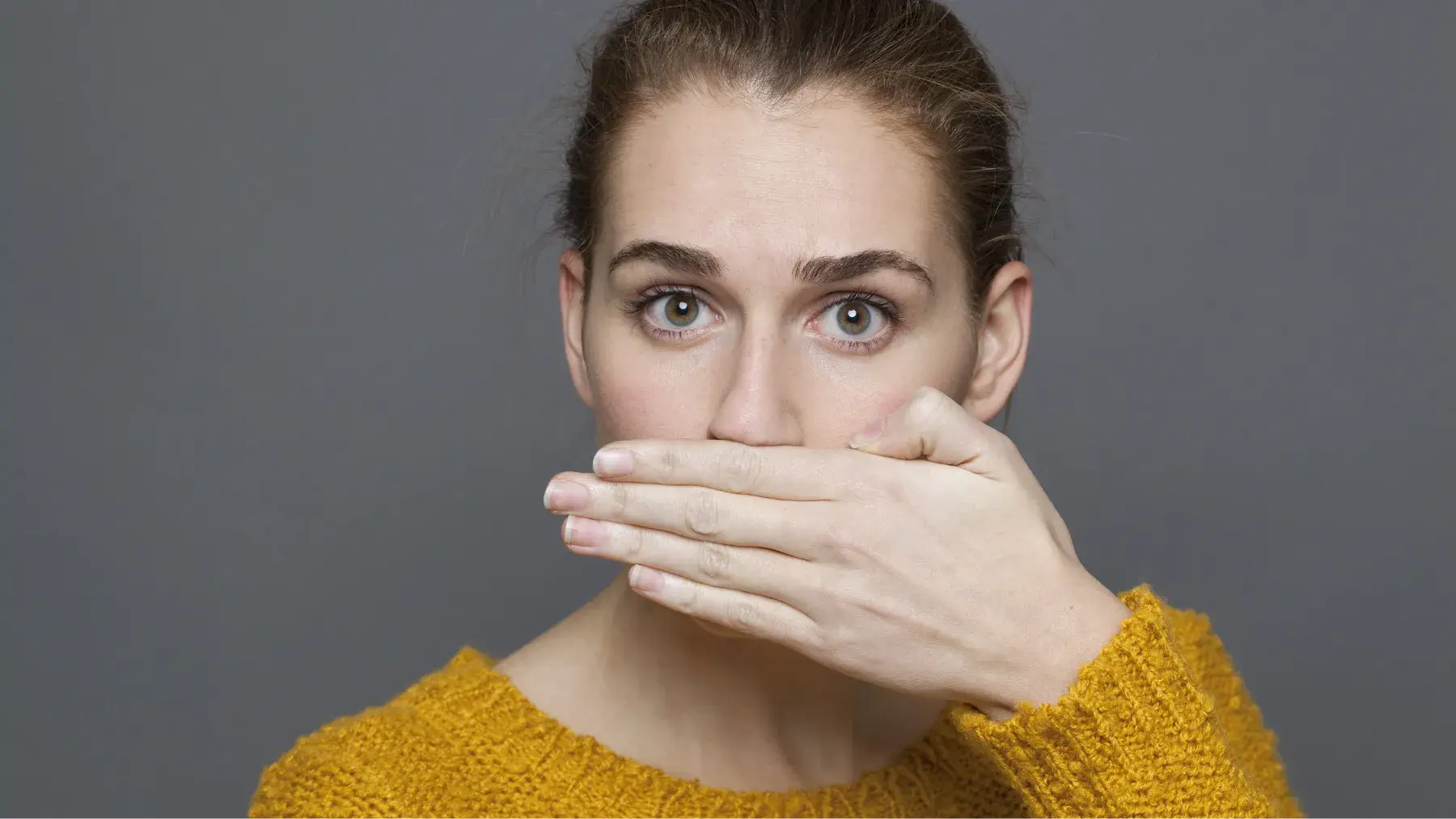What Causes Bad Breath?
Bad breath, medically known as halitosis, can be caused by something you eat, or more seriously, can signify a deeper oral health issue or serious medical issue. Here we’ll describe possible causes of bad breath as well as reasons for chronic bad breath or halitosis.

General Oral Health
Most bad breath is caused by poor oral hygiene. If you don’t clean your teeth and your whole mouth regularly, food particles can remain in your mouth and a sticky buildup of bacteria (also known as plaque) can form on your teeth. The uneven surface of your tongue as well as your tonsils can trap food particles and bacteria in the mouth which can cause your breath to smell. Poor oral hygiene also causes other oral health conditions such as cavities, dental plaque buildup, and gum disease which are also associated with bad breath. Keeping a consistent and thorough oral care routine with brushing, flossing, and using mouthwash is one of the best defenses against bad breath.

Eating Flavorful Food & Drink
After eating certain foods—like onions, garlic, certain vegetables, and spices—odor-causing food particles enter the bloodstream and are carried to the lungs, where they affect the odor of your breath each time you exhale.

Coffee and Bad Breath
If you’re a big fan of a strong cup of coffee in the morning to start your day, you may have noticed that it can leave you feeling like you have bad breath. Coffee can be a cause of stinky breath due its intense flavor as well as the effect it has on saliva production. After drinking coffee, the caffeine leads to a decline in saliva production. Less saliva means an increase in odor-causing bacteria. It also means any food particles that may linger from your last meal start to break down inside your mouth, leading to bad breath.

Alcoholic Beverages and Bad Breath
Alcohol consumption is another culprit of bad breath, so the more often you drink - the more likely you are to experience it. Drinking alcohol, particularly in excess, can cause a decrease in saliva production, which is a great environment for odor-causing bacteria to flourish. Alcohol not only might cause dry mouth, it can allow bacteria to linger up to 10 hours after you finish drinking.

High-Sugar Diets
A diet high in sugar can lead to plaque buildup and bad breath and could be the culprit for halitosis due to how sugars interact with the existing bacteria in your mouth. The bacteria that naturally exist in your mouth feed on sugars turning sweet treats into sour smells.

High-Protein or Low-Carb Diets
Carbohydrates serve crucial functions in our bodies, and if your diet is too low in carbs or high in protein, it can lead to bad breath. When the body doesn’t get enough carbs due to an extreme diet, this can cause changes to your body’s metabolism as your body starts breaking down other fats and proteins for energy, which can lead to bad breath.
High-protein foods are sometimes difficult for your body to digest and tend to release sulfurous gases when they don’t metabolize. Avoid this by eating a more balanced and nutritious diet including more vegetables and herbs.

Stress Can Cause Bad Breath
Believe it or not, anxiety can do more than make your palms sweat and your heart pound. All those panicked breaths can also dry out your mouth and make the aroma coming out of it something to worry about. Stress-related fasting can also affect your digestion by starving your stomach of enzymes. Without them, any undigested food that isn’t broken down releases odors that find their way into your mouth.

Smoking and Smoker’s Breath
Tobacco products—whether it’s cigarettes, chew, or pipe—all cause bad breath and lead to much more serious oral health issues. Apart from leaving your mouth smelling like an ashtray, they damage the gum tissue and cause gum disease.

Digestive Issues
Poor digestion, constipation, or bowel disorders can all cause bad breath from the stomach. If you frequently experience acid reflux, the odors from recently consumed foods may easily make their way back up the esophagus and into the mouth, causing bad breath or halitosis. Another common digestive problem stems from an imbalance of good and bad bacteria in the gut; foods aren’t properly broken down, resulting in acid reflux, yeast overgrowth or fermentation, resulting in stinky or bad breath.

Dry Mouth
Saliva helps keep your mouth clean by removing food particles that lead to bad breath. When the production of saliva slackens or stops, a condition known as xerostomia, bad breath is likely to follow. This happens naturally while you sleep, which is why most people find their breath to be a bit stinky upon waking up. But if the problem persists throughout the day, treatment may be worth considering.

Prescription Medication
Sometimes the things we take to solve one problem wind up creating another. In this case, certain medications including those for blood pressure, antihistamines, and antidepressants, can cause xerostomia, or dry mouth. In fact, hundreds of prescription medications come with the side effect of dry mouth. When your mouth is dry, when saliva production decreases, the environment for odor-causing bacteria thrives. Any extended period of time with cotton mouth can cause discomfort and lead to bad breath. Additionally, some medications, when broken down in the body, release chemicals that can be carried through your blood stream to your breath.

Sinus
Sometimes when your nose starts running, your breath can have people running, too—in the opposite direction. That’s because excess mucus will often drip down the back of your throat, which basically creates an open invitation for bacteria to gather and multiply, resulting in bad breath. In the case of sinus infections, mucus stops circulating, builds up and allows bacteria to overtake your mouth with its foul odor. If you think your bad breath is the result of a sinus issue, it could be time to call your doctor – he or she might encourage a visit to a doctor who specializes in ear, nose, and throat.

Diabetes
Because diabetes causes your blood-sugar levels to fluctuate, it can also leave your mouth vulnerable to bad breath-causing periodontal diseases. The systemic inflammation associated with diseases like diabetes can affect your mouth and contribute to bad breath.

Other Bad Breath Causes
Although most cases of halitosis or bad breath are caused by odor-causing bacteria, there are a number of other health conditions that may be contributing to the problem. Constant or chronic bad breath can be a warning sign that other diseases or illnesses are present. Ailments such as postnasal drip, respiratory and tonsil infections, liver and kidney issues, as well as certain blood disorders can all cause bad breath. In some rarer cases, bad breath could be a sign of lung or stomach cancer or other serious conditions like metabolic disorders.




